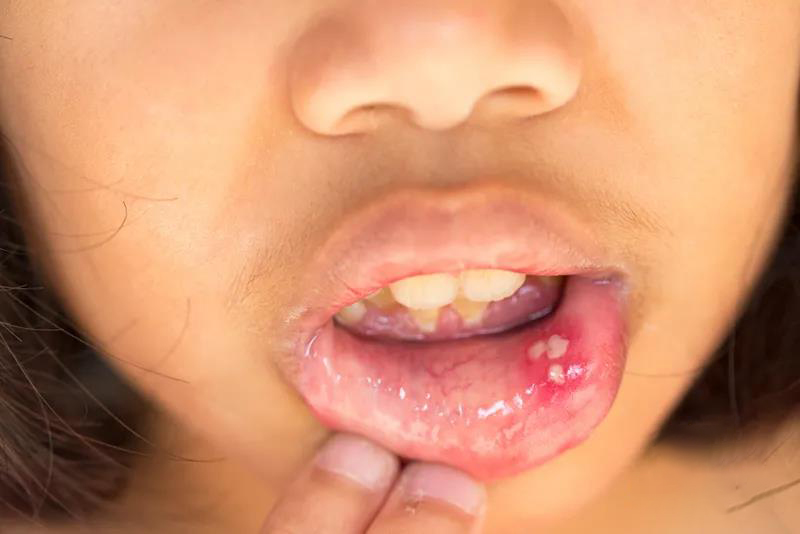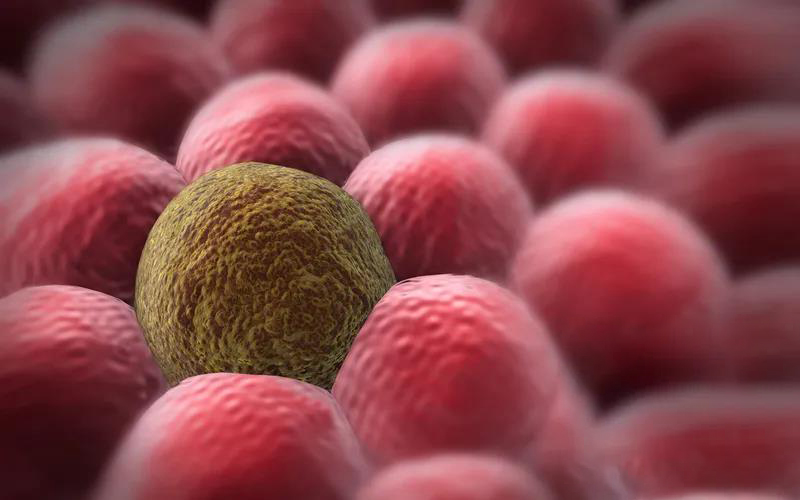
It’s another good morning! What should everyone do early in the morning?
It is often necessary to brush your teeth first:

Then have another breakfast:

Here comes the problem. Some people have “unspeakable concealment” early in the morning. Whether it is brushing their teeth or eating breakfast, they will be so painful and crazy:

This “unspoken concealment” is oral ulcers. It does not seem to be a disease, but it may be really “terrible” when it hurts. Both young and old may have suffered from it.
Especially if oral ulcers do not heal repeatedly, it is even more frantic. There is even a link between recurrent oral ulcers and cancer on the Internet.
So how is this oral ulcer caused? Is it really a sign of cancer if it is not cured for a long time? How to prevent and treat?
I will tell you all today.
What kind of disease is oral ulcers?
In medicine, oral ulcers are a high-incidence oral disease, which is essentially a superficial ulcer on the oral mucosa.
Oral ulcers are mostly the size of rice grains or soybeans. The surface of the ulcers is sunken, and symptoms of hyperemia and edema will appear around them, much like the surface of the moon.

Common symptoms include oral pain, dry mouth, mucous membrane bleeding, etc. Due to pain and discomfort, patients often encounter difficulties in eating and drinking, and even affect speech pronunciation.
Why does oral ulcers go back and forth again and again?
Recurrent oral ulcers are also called recurrent aphthous ulcers. This disease has no specific time of onset and can occur throughout the year. There is no fixed group of recurrent oral ulcers, which can be affected by men, women and children, but the incidence rate of women is slightly higher than that of men.
Recurrent oral ulcers mainly include three types: mild recurrent oral ulcers, herpes-like recurrent oral ulcers, and severe recurrent oral ulcers.

In fact, the pathogenesis of recurrent oral ulcers is more complicated, which may be related to systemic immune dysfunction, genetic factors, digestive system diseases, viral or bacterial infections, nutritional levels, endocrine abnormalities, psychological factors, allergies, and so on.
Is oral ulcer not cured for a long time a sign of cancer?
It is precisely because pain is the main symptom of patients with oral ulcers, many people worry that oral ulcers will not heal for a long time and will become cancerous.
In fact, oral ulcers do not directly turn into oral cancers. Instead, the symptoms of early oral cancers are not obvious, and the patients consider themselves to be oral ulcers, or misdiagnose them as recurrent oral ulcers.

Chronic stimulation is one of the most common risk factors for oral cancer, including mechanical stimulation and chemical stimulation.
There are many forms of chronic irritation, among which the more common are smoking, drinking, sun exposure, nutritional deficiencies, radiation therapy, and poor oral hygiene. Some local irritation, such as chronic irritation caused by residual tooth roots and unqualified dentures.
How to distinguish oral ulcers and cancer?
Oral ulcers and cancer have obvious differences between benign and malignant in nature.
Common ulcers have four major characteristics, namely “red, yellow, concave, and painful”. The main feature is that there is often a circle of congestion and flushing on the edge of oral ulcers, which is manifested as inflammation and obvious burning pain.
Cancerous ulcers are often found in the “dangerous triangle” in the mouth, namely the belly of the tongue, the edge of the tongue, the floor of the mouth, and the soft palate complex. Such ulcers are generally single, fixed in position, long-term non-healing, and the ulcers have different depths and edges. It is not neat, shaped like a cauliflower, and has a hard texture to the touch.
In addition, ordinary ulcers are often painful, and the fire is scorching. On the contrary, the pain of cancerous ulcers is often not obvious, so it is easy to be ignored. Some people have not seen it for a few years, and they may have reached the advanced stage when they see a doctor.

The following oral problems require a high degree of vigilance:
It looks like a “mouth ulcer”, but it does not heal for many years. There is no pain on the surface of the ulcer, the site of the ulcer is fixed, the shape is irregular, and lumps can be felt around and on the base of the ulcer.
A swelling was found on the gums, and the teeth around the swelling became loose and falling out.
A swelling is found in the mouth and it grows fast. In particular, it hasn’t changed for several years, but has grown up suddenly in recent period, accompanied by pain, bleeding and other manifestations.
How to prevent and treat oral ulcers in life?
Avoid spicy and irritating hot foods, and eliminate the irritation of tobacco and alcohol. Pay attention to a diverse diet and a balanced nutrition, especially eating more vegetables and fruits rich in vitamins and dietary fiber. Eat more high-quality protein (such as fish, poultry, eggs, milk and soy products).
Keep a happy mood, avoid overwork and nervousness, and ensure adequate sleep.

Pay attention to oral hygiene, brush your teeth in the morning and evening, and use a soft toothbrush.
If you have dental problems such as dental caries, residual roots, residual crowns, etc., you should see a doctor promptly. If the denture is not suitable, it is also recommended to adjust it in time to avoid repeated rubbing of the mucous membrane and gums.
Self-treatment methods:
Take 10 mL of compound chlorhexidine gargle each time, spit out after gargle for 3 minutes, 3 to 5 times a day, do not eat or drink within 30 minutes after gargle;
Triamcinolone Acetonide Oral Ointment: Take an appropriate amount and apply it to the lesion of oral ulcer, twice a day, rinse with water after dinner and apply the medicine;
Oral vitamin B2, 3 times a day, 2 tablets each time.
If it persists for a few days and does not get better, it is recommended to seek medical attention.
In summary, oral ulcers are repeated repeatedly, which is not necessarily a sign of cancer. The symptoms of cancer and ordinary oral ulcers are quite different.
If you find several danger signs, seek medical advice in time, pay attention to oral hygiene at ordinary times, and avoid irritation
Comments